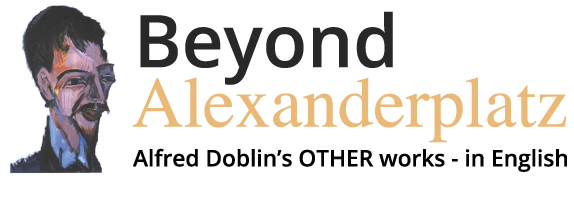Phantasus Selection 1
The plain uncomplicated language of the 101 poems in the first (1898-99) edition of Phantasus packs a considerable punch of meaning and emotion. Little gems that set a scene or mood as concisely as a Japanese haiku or a Chinese verse; flights of fancy that soar from a transient dewdrop into cosmic space and time; boyhood memories that bring a lost world vividly to life.
INTRODUCING ARNO HOLZ’S POEM-CYCLE PHANTASUS
Before Phantasus, Holz had published two volumes of poetry: Klinginsherz (1883, when he was twenty: the rather twee title means “Chime into the heart”), and Das Buch der Zeit (“The Book of Time”) of 1886, a much more substantial collection.
Both earlier books continued to use rhyme and a regular meter, although The Book of Time tried to fit a new kind of content into these worn-out forms. But Phantasus broke quite new ground: no rhymes (because rhyming forces the poet to discard at the outset a large chunk of the language’s resources), and rhythms that emerge from how the language is actually spoken.
The innovation which most strikes the eye is the Centred Line: each poem comprises lines of very different length, but all share a common axis. Consider: is this device more than just a typographical trick, dressing up what is actually prose rather than poetry?
In an age when German literature was created almost entirely for the (mis)educated and not very numerous upper middle class (leaving aside the military, who had no patience with such nonsense as art or literature), and when most writers were either pale imitators of Classical forebears, or elitist “innovators” playing with a language divorced from daily life (a practice Döblin deplored in many of the Expressionists who came along a decade later), Holz’s approach was revolutionary: the poet aims to pin down, in words, very particular aspects of the world: its material manifestations in living nature and in the human-constructed city, its interactions with the human sensory and emotional apparatus, and the stimuli it offers to the human predilection for fancy and imagination.
I plan to post the first complete English translation of the two Albums that comprise the first edition of Phantasus on 26 April, which is Holz’s birthday. Meanwhile I’m posting a series of short selections highlighting the half-dozen principal themes that occur throughout the poem-cycle:
- Boyhood and Domesticity
- Cosmos, Time, and Existence;
- Fantasy and Imagination
- Emotions
- The City
- Nature
(1) Boyhood and Domesticity
Almost a third of the poems touch on this first Theme. Here are five of them.
Red roofs!
From chimneys here and there, smoke,
above, high, in the sunny air, now and then, doves.
It’s afternoon.
A hen cackles from Mohdricker’s garden,
the whole town smells of coffee.
I’m a small boy, eight years old
lying, chin in both fists,
flat on my tummy
peeping down through the hatch.
Below me, steep, the yard,
behind me, thrown aside, a book.
Franz Hoffmann The Slave Hunters.
How quiet it is!
But over there in Knorr’s gutter
two sparrows are squabbling over a straw,
a man is sawing,
and in between, clearly from over by the church,
with short pauses, rhythmic, hammering,
Thiel the coppersmith.
When I look down
I’m gazing straight onto Mother’s flower shelf:
a pot of wallflowers, two pots of stocks, a geranium,
and in among them, dainty in a little cigar box,
a clump of mignonette.
And the scent? All the way up to me!
And the colours!
Now! How the wind wafts over it all!
The wonder, wonderful colours!
I shut my eyes. I can still see them.
A little house with a door that’s green
and hearts in the window shutters!
At evening,
beneath the silver poplars
we sit with our little boys.
“Mother, mother, the Moon’s broken!”
The littlest one too looks up.
“Biela!
Are you a maybug?”
“Yeth.”
Next morning Biela is ill.
Poor Biela!
He sits content in bed, scoffing cake.
His brother
is playing.
“Hey – Mother?
My bear is ill too!”
Really?
What’s wrong with him then?
“Um, maybe a butterfly bit him?”
In our old apothecary shop
with its many stairs and attics
were lots of chimneys.
Under one of them you could stand right beneath it
and look up in broad daylight to see stars.
Sometimes it was all dark.
Then you couldn’t see a thing, and only felt big fat heavy raindrops
splash icy cold on your cheeks.
But the best was when shortly before Christmas,
early in the morning,
when the whole house smelled of marzipan hearts,
right below the little peephole square up there,
you discovered on the ground a little pointed heap of snow.
It gleamed just like a pastrycook’s hat!
On a mountain made of sugar-candy
beneath a juniper tree in flower
my little gingerbread house shines out.
Its little windows are gold paper,
cotton wool rises from its chimney.
In the green sky above me the Christmas tree rustles.
In my silver-paper pond
all its angels, all its lights are mirrored!
The little children stand around,
stare at me, astonished.
I am the dwarf Turlitipu.
My fat belly is of tragacanth gum,
my little legs are matches,
my small cunning eyes
currants.


